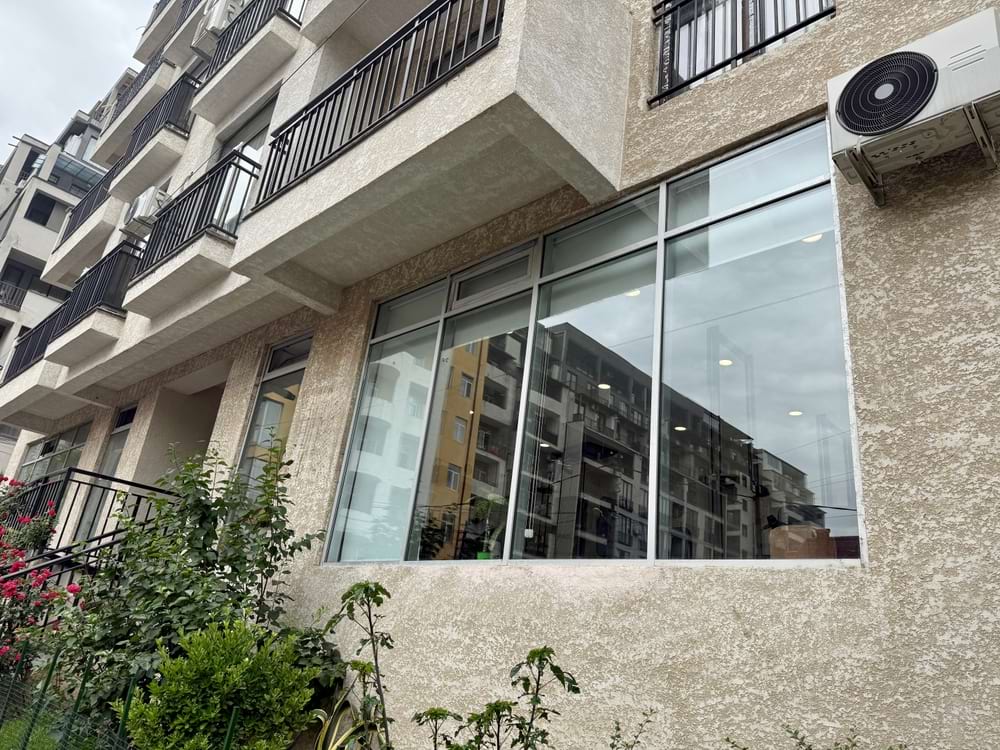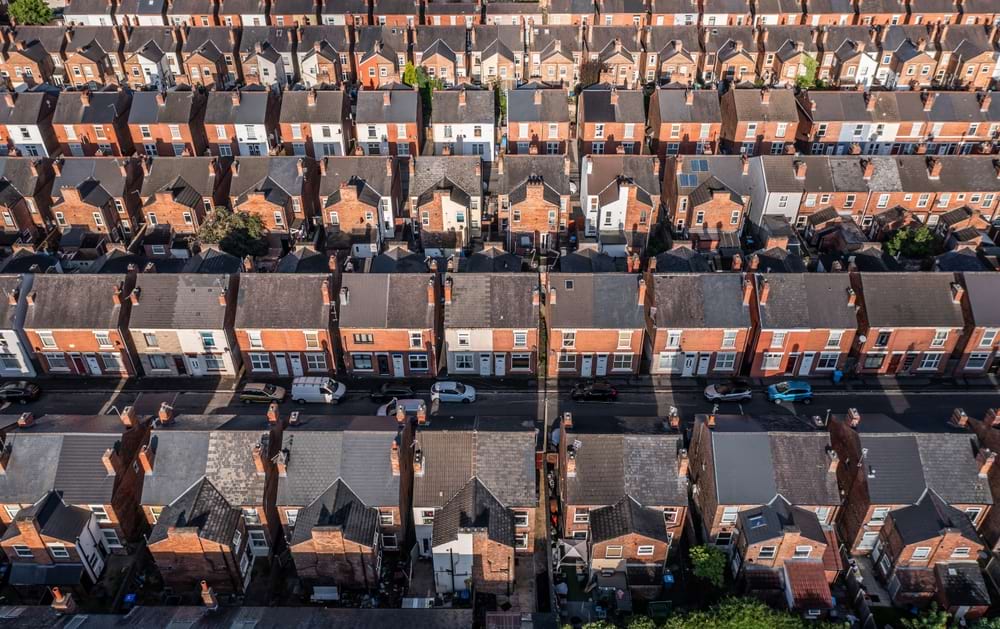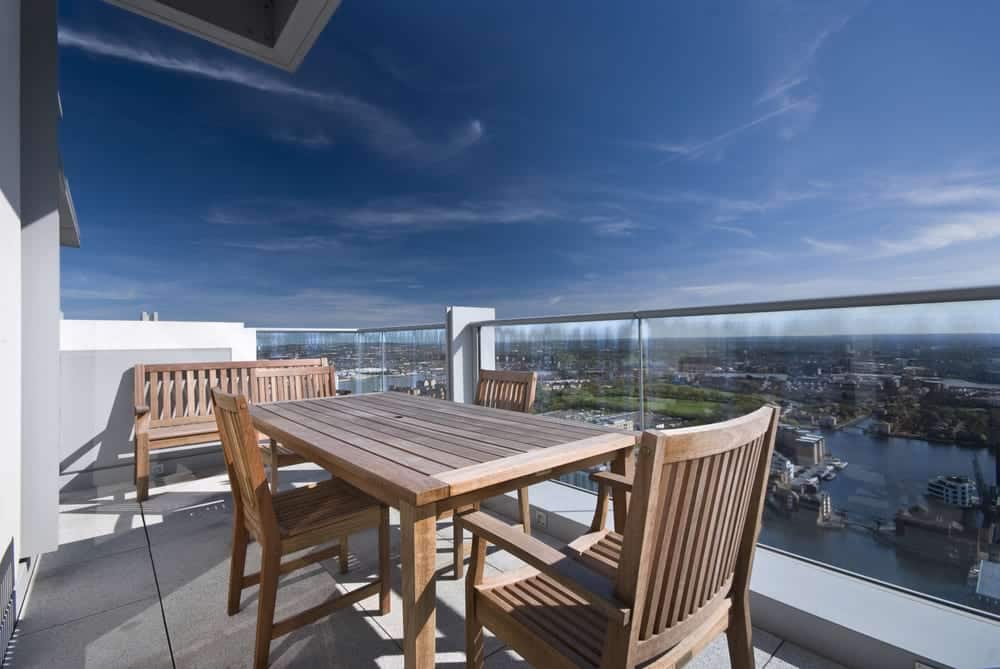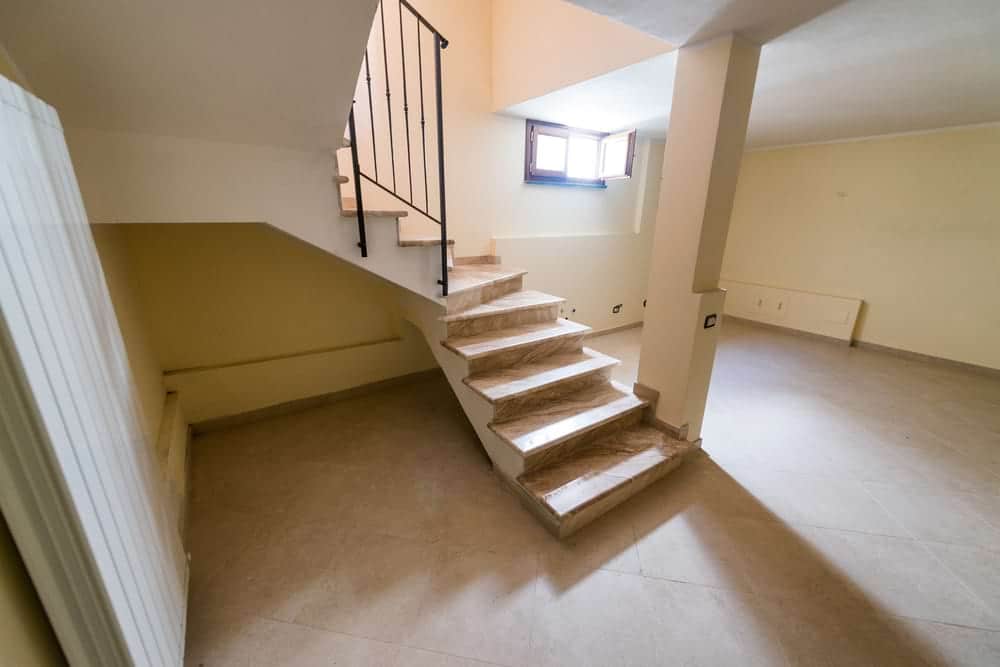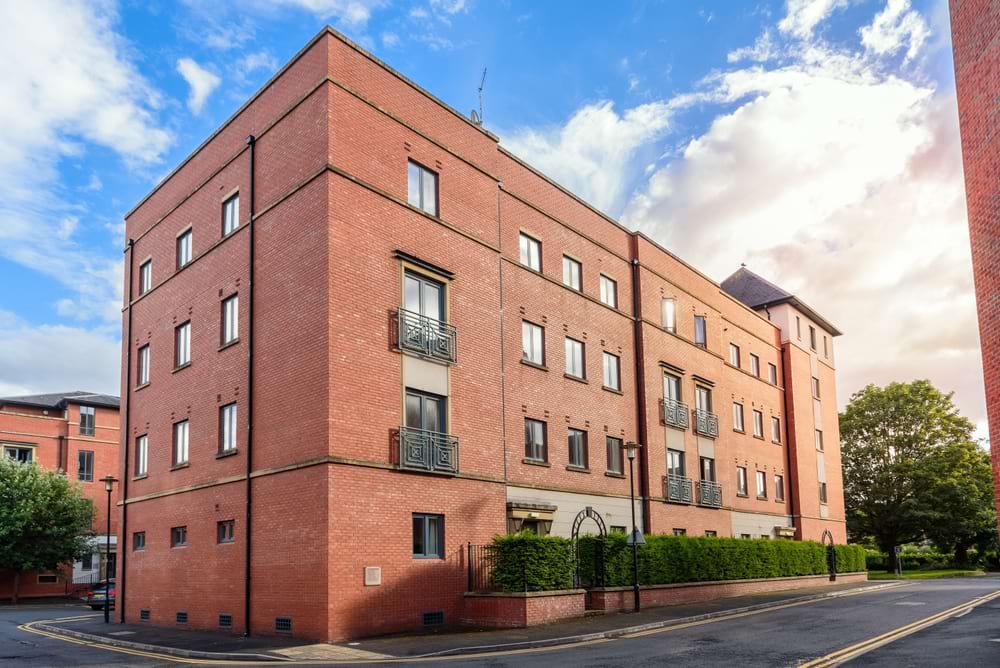“Leasehold” refers to a common but often misunderstood type of ownership.
In the blog below, we will explain:
- What a leasehold is
- When you might encounter it
- Its pros and cons
Leasehold: Definition
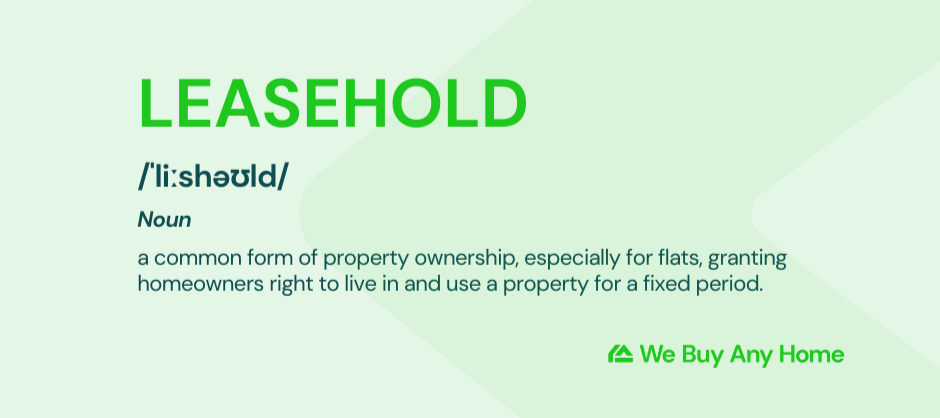
A leasehold is a form of property ownership in which you own the right to live in and use a property for a fixed period.
After this period, the leasehold expires and the leaseholder has no right to live there.
A freeholder owns the land and building, which they are also responsible for. So, for example, they take out building insurance for the properties.
So, leaseholders effectively rent from freeholders by paying ground rent and service charges.
Lease length
When you buy a leasehold property, you buy the remaining years left. This is often a long term – 99 or 125 years, for example.
Over time, the lease gets shorter. Once it drops below 80 years, selling your property becomes more challenging.
Extending the lease or buying the freehold solves this. But it can often cost a significant amount of money.
The UK government plans to introduce a law to make it easier for leaseholders to extend their leases.
(Read on to find out more about this law).
When leases end
999 years may seem excessive. But it’s great for a property owner.
Once a lease term ends, the land (and any property on it) would return to the freeholder. This applies even if the freeholder’s mortgage is paid off.
A clear agreement drawn up to outline each party’s responsibilities and leaseholder’s fees.
Banned but not gone
The government has recently banned new leasehold houses. But owners can still sell existing ones.
Freeholds vs leaseholds
Freeholds are the other most common type of UK property ownership.
Leaseholds and freeholds are different. The main difference is that freeholds are permanent. By contrast, leasehold ownership:
- Provides property rights for a fixed term
- Requires ground rent and service charges
- Is subject to the lease terms.
(Another property ownership model is commonhold. This is when multiple residents jointly own the common areas of a property.)
Turning leaseholds into a freeholds
Converting most leasehold properties to freeholds is possible by buying the underlying land, usually via a legal process called enfranchisement.
This gives them more control and increases the value of their flat.
To qualify for enfranchisement, you need to have owned the leasehold for two years. Collective enfranchisement is also possible.
This is where many leaseholders in a building group together to buy the freehold.
The process involves notifying the freeholder. You then get a valuation on the property’s freehold value. This considers the remaining lease length and ground rent owed.
The shorter the lease, the lower the freehold cost. You will also need to pay the freeholder’s legal fees.
Is the UK Government changing the leasehold laws?
In recent years, concerns have grown over unfair leasehold practices in the UK. These include:
- Escalating ground rents
- Unfair fees
- Freeholders’ slow approval of changes.
As a result, the UK government introduced new legislation in 2024. This aims to reform residential leaseholds in England and Wales.
Key changes include:
- Banning the sale of new leasehold houses except for in exceptional circumstances
- Making it easier and cheaper for people to extend their lease or buy their freehold.
- Increasing the standard lease extension term to 990 years for houses and flats.
These changes have not yet come into effect. The government will aim to provide guidance on when the changes will become ‘official’.
You should keep an eye on developments in this area if the information is relevant to you.
Can you get a leasehold on properties other than a flat
Leaseholds are common for different types of flat. But they can also apply to houses.
Leasehold houses have been built in the UK since the 1950s.
There are around 160,000 leasehold houses in England. This makes them less common than leasehold flats.
New build leasehold houses were popular with builders. It gave them more control over the land and allowed them to charge ground rent. This made it easier to control the quality of the development.
Other rarer examples of leasehold properties include car parking spaces and commercial properties. Parks and land are more examples.
Advantages & disadvantages of a leaseholds
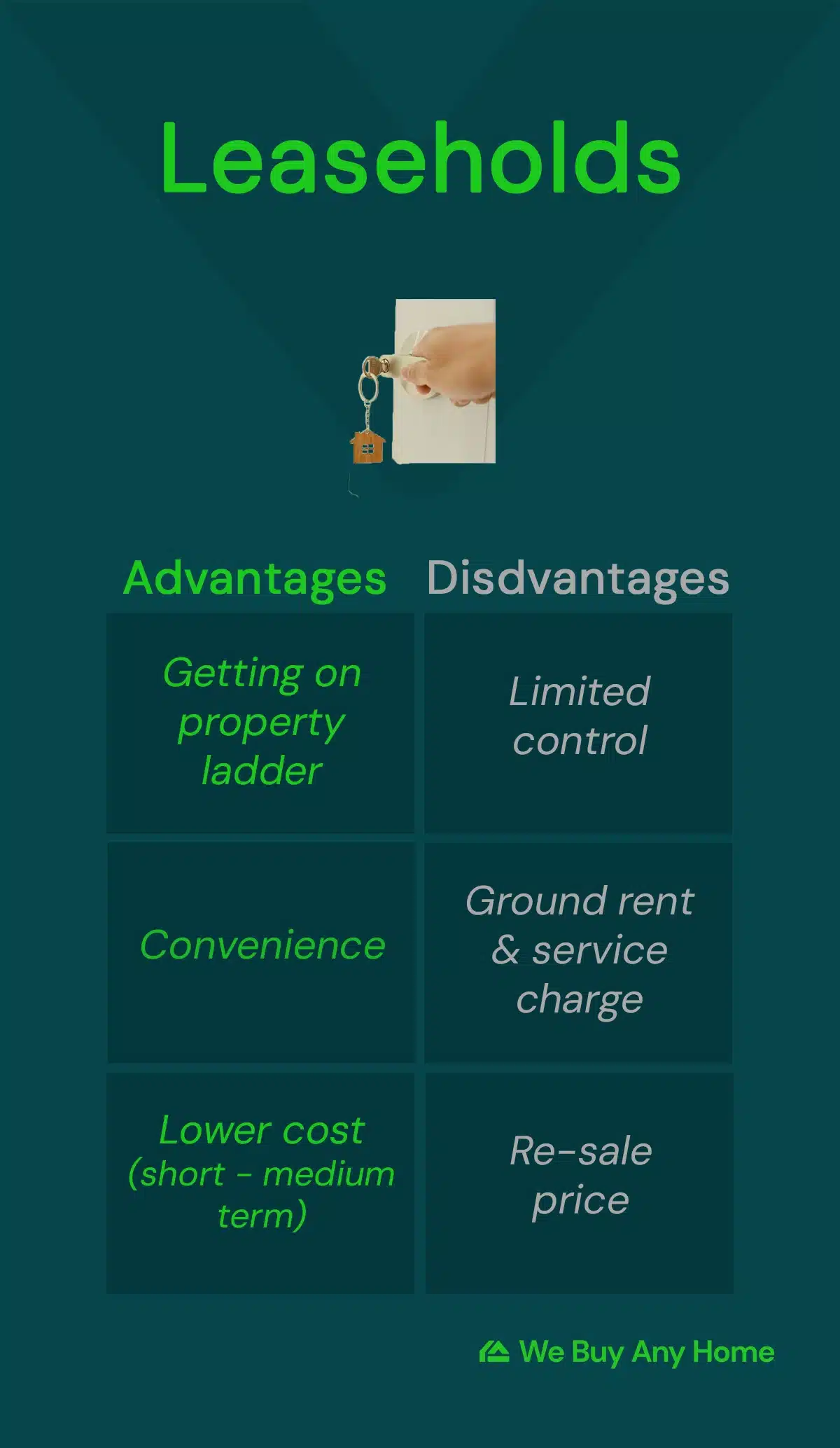
Advantages
Getting a foot on the property ladder
Leaseholds offer a unique opportunity to access property ownership. This might otherwise be unaffordable.
Many leaseholds also allow for shared ownership. This is when you buy part of the lease upfront and later buy more or convert to freehold.
Convenience
The freeholder handles responsibilities like external maintenance. This makes your life easier by giving you less administration duties.
Lower cost
Leaseholds are often less expensive for you to buy than freehold equivalents.
Disadvantages
Limited control
A major disadvantage of leasehold property is that you don’t own it entirely. There are also limits to your rights and control.
For example, if you want to make alterations, you will usually need permission.
Costs
Ground rents and service charges must go to the freeholder along with your mortgage. These can increase over time.
Even if you can afford it when you first buy the house, it may not be the case in the future.
The lease length reduces over time. So, it can be challenging to sell your flat or mortgage when it drops below 80 years.
You will need to spend a significant amount extending the lease, when the time arises.
Re-sale price
Leaseholds can be difficult to sell under some circumstances. The resale value of leaseholds can be lower than freeholds.
(However, outside of these circumstances they leaseholds still increase in value.)
Geting a mortgage on a leasehold flat with a short lease
It is possible – but challenging – to get a mortgage on a property when the lease term drops below 70-80 years.
Most lenders have restrictions on lending against leasehold flats with short leases. It affects their ability to repossess and sell the flat if you default on payments.
There are a range of options available to you when getting a mortgage.
- Some lenders who may agree to shorter terms. Although, interest rates are usually higher. Specialist brokers can help you to search for deals in this position.
- You can opt for a shorter fixed-term mortgage over 5 – 10 years, rather than longer-term 25-year deals. This reduces the lender’s risks.
- Buying a share of the equity, while a housing association owns the rest. This can make it easier to get approval.
- Paying lump sums to extend the lease before getting a mortgage gives you a longer term to work with.
- Asking the seller to extend the lease as a condition of sale is worth exploring.
The process of selling a leasehold property
Selling a leasehold property is similar to selling other types of properties.
The only one difference is the documents involved. Leaseholders need to send:
- The lease agreement
- A copy of both your title
- The freeholder’s title.
They may also have to provide (however, this will vary on a case-by-case basis):
- The building’s insurance schedule
- Annual accounts for the managing agent
Selling a leasehold property
There’s no straight answer to ‘is it hard to sell a leasehold property’.
But there are things that need considering when you buy one.
Potential buyers will weigh the usual pros and cons of buying a flat.
But there can be a few potential issues that can put them off a leasehold property, such as:
1. Length of lease
If you have a lease with less than 75 years remaining, then selling the property can be difficult.
A short lease devalues property and makes it hard to get a mortgage.
Most lenders refuse to lend on properties with a short lease. In this scenario, you’re looking for a cash buyer. However, these aren’t always easy to find.
2. Property condition
This isn’t unique to leasehold properties. It’s universal when it comes to selling any home.
Having your leasehold property in a good condition makes it more appealing to buyers.
3. Lease terms
Buyers considering leasehold properties should have a solicitor review the lease terms.
Particular attention will be paid to:
- Ground rent terms
- The cost of the service charge
- Building insurance
- Any terms impacting the sale of the property in the future.
If any of these don’t look desirable, it goes without saying the property will be harder to sell. Potential buyers can then renegotiate the price or pull out of the sale altogether.
Things to consider
National Association of Estate Agents carried out research back in 2018. It found that 94% of leasehold owners regretted buying their property.
In fact, many feel homes were mis-sold to them…
Know your lease well
If you want to sell a leasehold property, gather as much information as early as possible in the process.
Buyers will have questions around details on:
- The lease
- The ground rent
- The service charges.
Extending your lease
It’s also worth considering extending your lease if you’re under the 70–80-year mark.
Weigh up whether the costs involved with extending the lease will be worth the value it can add to the property.
Convert your lease
Consider converting your lease to a freehold.
This may be expensive in the short term and time-consuming. But in the long term, it can add value to your property and save you costs.

